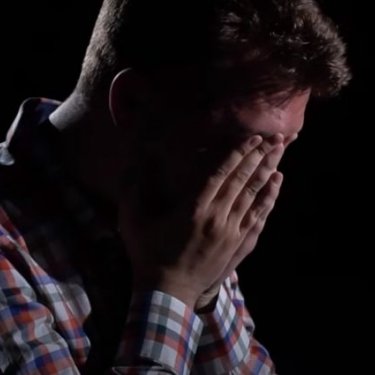RSF provides Lithuanian prosecutors with more evidence in support of hijacking complaint against Belarus

Reporters Without Borders (RSF) has provided the Lithuanian prosecutor-general’s office in Vilnius with detained Belarusian journalist Raman Pratasevich’s three forced confessions as additional evidence in support of the complaint RSF filed on 25 May accusing the Belarusian president of “hijacking an aircraft with terrorist intent.”
Reporters Without Borders (RSF) has provided the Lithuanian prosecutor-general’s office in Vilnius with detained Belarusian journalist Raman Pratasevich’s three forced confessions as additional evidence in support of the complaint RSF filed on 25 May accusing the Belarusian president of “hijacking an aircraft with terrorist intent.”
Extracted by the Belarusian authorities from Pratasevich after forcing his Ryanair flight from Athens to Vilnius to land in Minsk on 23 May, and broadcast by the Belarusian state media, the forced confessions were formally communicated by RSF to the prosecutor-general’s office on 1 July.
These forced confessions show that, when the Belarusian authorities diverted the plane in order to arrest Pratasevich, they did so with the intention of terrorising the Belarusian population, and in particular independent journalists, by showing not only that they could be arrested anywhere and imprisoned arbitrarily, but also that they could be forced to make public false confessions and publicly disavow their beliefs.
The Belarusian authorities have broadcast filmed confessions by Pratasevich three times: on the state TV channel ONT on 24 May, the day after his arrest; in a 90-minute interview broadcast by ONT on 3 June; and finally when Pratasevich participated with senior officials in a press conference at the Belarusian foreign ministry on 21 June.
Each time, Pratasevich said he was speaking of his own free will, that he had been treated well and that he was pleading guilty to the accusations brought against him by the Belarusian authorities. He recognised having tried to overthrow President Lukashenko and even praised him, saying that he realised that Lukashenko “is doing what is needed,” that he has “unconditional respect for him” and that Lukashenko has “balls of steel.”
However, there is every reason to doubt the sincerity of his statements and to conclude that they were extracted with a particular aim. Pratasevich is being held by the Belarusian authorities and is at their complete mercy. He is facing very heavy sentences and is threatened with the possibility of extradition to separatists in eastern Ukraine’s Donbass region who are backed by Russia (which has initiated criminal proceedings against him for his presumed role in the hostilities). His girlfriend is also detained in Belarus.
Pratasevich’s own family has publicly said they don’t believe these confessions. After the interview was broadcast on 3 June, his father told AFP: “I know my son very well and I think he would never say such things. They have broken him and forced him to say what was necessary.” He added: “No one should believe these words because they have been extracted from my son by force, by abuses and torture.”
The letter that RSF sent to the Lithuanian prosecutor-general’s office on 1 July says these confessions should be used as evidence of the Lithuanian authorities’ terrorist intent in the investigation that the prosecutor-general’s office opened in response to RSF’s complaint.
The confessions continued the hijacking’s intimidatory objective, as much as they demonstrate this objective. They show that the purpose was not just to discredit journalists and the opposition as a whole but also and above all to terrorise them, by showing what could happen to any critics or opposition activists, namely, being forced to publicly accuse themselves and disavow their beliefs.
The public and repeated nature of these forced confessions, the fact that they were widely broadcast and the shocking use of torture prove the terrorist intention, the deliberate intent to instil terror in the public and in the journalistic community in Belarus and abroad.
Belarus is ranked 158th out of 180 countries in RSF's 2021 World Press Freedom Index.



